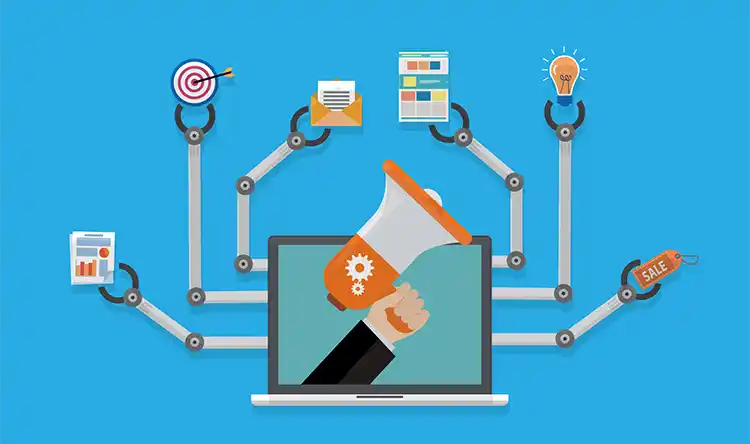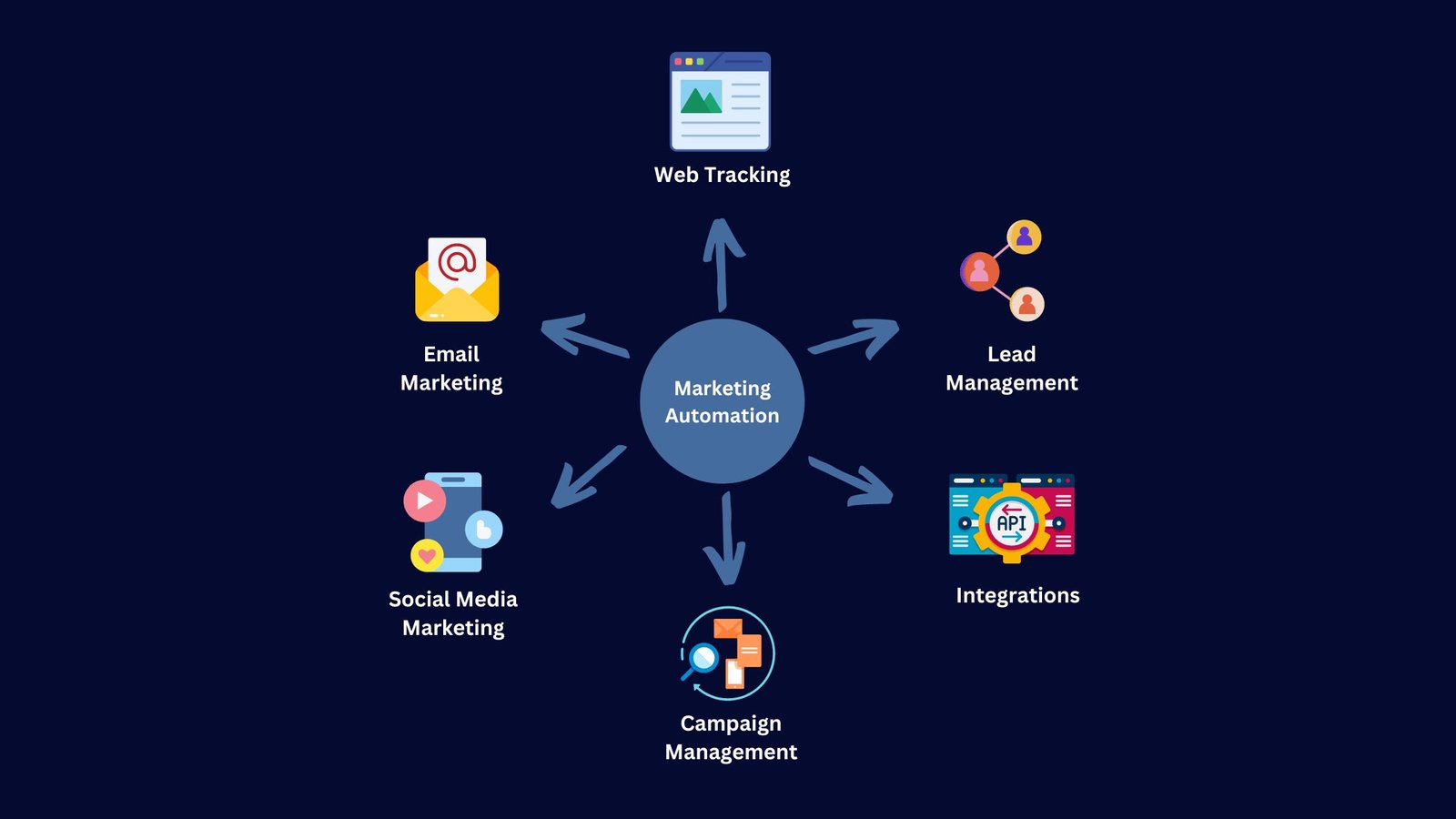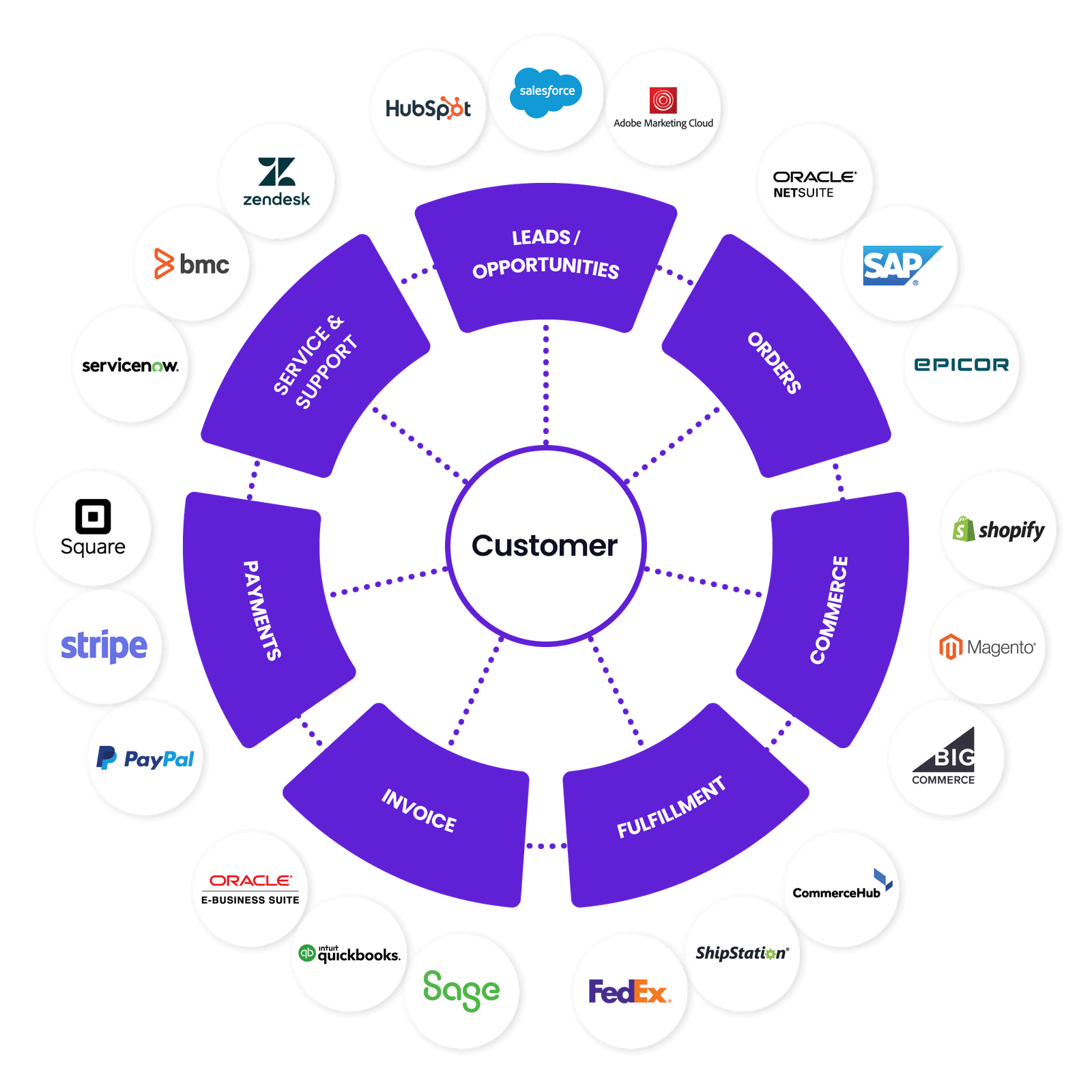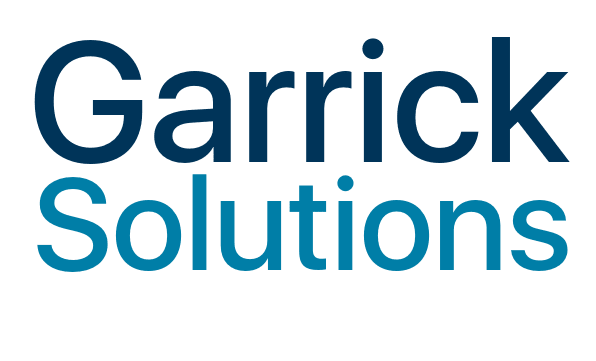
In the ever-evolving world of marketing, staying connected with customers is vital for business success. That’s why integrating marketing automation with customer support systems has become a game-changer for seamless customer engagement. By combining the power of automated marketing processes with efficient customer support tools, businesses can enhance their customer interactions and drive meaningful connections. In this article, we will explore the benefits and strategies of integrating marketing automation with customer support systems, unlocking the potential for unparalleled customer engagement.
When it comes to marketing automation, it’s all about streamlining and optimizing your marketing efforts. From email campaigns to social media scheduling, automation tools can handle repetitive tasks and deliver personalized messages at scale. On the other hand, customer support systems are designed to assist customers and resolve their queries promptly. By integrating these two powerful tools, businesses can create a seamless customer experience, providing timely support while nurturing leads and driving conversions. So, let’s dive in and discover how the integration of marketing automation with customer support systems can revolutionize your customer engagement strategies.
Integrating marketing automation with customer support systems can greatly enhance customer engagement. By automating repetitive marketing tasks and seamlessly integrating them with customer support systems, businesses can provide personalized and timely support to their customers. This helps in building stronger relationships and improving customer satisfaction. Moreover, by leveraging marketing automation, businesses can efficiently nurture leads, send targeted messages, and track customer interactions. Ultimately, this integration enables businesses to streamline their marketing and support efforts, resulting in a seamless and enhanced customer experience.

Integrating Marketing Automation with Customer Support Systems for Seamless Customer Engagement
Marketing automation and customer support systems are two critical components of a successful business operation. When integrated effectively, they can create a seamless customer experience that drives engagement and boosts sales. In this article, we will explore the benefits and strategies for integrating marketing automation with customer support systems to enhance customer engagement.
The Importance of Integration
Effective customer engagement is crucial for businesses to thrive in today’s competitive market. By integrating marketing automation with customer support systems, companies can streamline their communication channels and provide personalized experiences to their customers. This integration allows businesses to automate repetitive tasks, track customer interactions, and deliver targeted messages at the right time. The result is a more efficient and effective customer engagement process.
Integrating marketing automation with customer support systems also enables businesses to gain valuable insights into customer behavior and preferences. By analyzing data from various touchpoints, businesses can identify patterns and trends, allowing them to tailor their marketing strategies to better meet customer needs. Additionally, this integration ensures that customer support teams have access to relevant customer information, enabling them to provide personalized and timely assistance.
Benefits of Integrating Marketing Automation with Customer Support Systems

1. Improved Customer Experience: Integrating marketing automation with customer support systems allows businesses to provide a seamless and personalized customer experience. By automating repetitive tasks, businesses can free up their support teams’ time to focus on more complex customer inquiries. This leads to faster response times and higher customer satisfaction levels.
2. Enhanced Lead Nurturing: Marketing automation tools enable businesses to nurture leads throughout the customer journey. By tracking customer interactions and behavior, businesses can deliver targeted messages and offers that resonate with their audience. This personalized approach increases the likelihood of converting leads into paying customers.
3. Increased Efficiency: Integrating marketing automation with customer support systems streamlines communication processes, reducing manual effort and increasing efficiency. Automated workflows ensure that customer inquiries and support tickets are routed to the right teams, minimizing response times and improving overall productivity.
4. Data-Driven Decision Making: When marketing automation and customer support systems are integrated, businesses have access to a wealth of customer data. This data can be analyzed to gain insights into customer preferences, behaviors, and pain points. Armed with this information, businesses can make data-driven decisions to improve their marketing strategies and customer support processes.
5. Seamless Communication: Integration between marketing automation and customer support systems enables seamless communication between marketing, sales, and support teams. This alignment ensures that all teams have access to up-to-date customer information, leading to a consistent and personalized customer experience.
Strategies for Integration
Integrating marketing automation with customer support systems requires careful planning and execution. Here are some strategies to consider:
1. Define Your Goals and Objectives
Before embarking on the integration process, clearly define your goals and objectives. Determine what you hope to achieve by integrating these systems and how it aligns with your overall business objectives. This will help guide your integration strategy and ensure that it delivers the desired outcomes.
2. Choose the Right Tools
There are numerous marketing automation and customer support systems available in the market. Research and select the tools that best meet your business needs and integrate seamlessly with each other. Consider factors such as functionality, ease of use, scalability, and compatibility with your existing systems.
3. Map Your Customer Journey
Understand your customer journey and identify the touchpoints where integration between marketing automation and customer support systems can add value. Map out the customer journey from awareness to advocacy, and identify opportunities to automate and personalize interactions at each stage.
4. Integrate Data and Systems
Ensure that your marketing automation and customer support systems are properly integrated at both the data and system levels. This includes syncing customer data, such as contact information and purchase history, between the two systems. This integration will enable a seamless flow of information and ensure a unified view of the customer across different touchpoints.
5. Automate Workflows
Leverage the automation capabilities of your marketing automation and customer support systems to streamline workflows. Automate tasks such as lead nurturing, ticket routing, and follow-up communications to improve efficiency and response times. This automation will enable your teams to focus on high-value activities that require human intervention.
In conclusion, integrating marketing automation with customer support systems is essential for businesses looking to enhance customer engagement. By aligning these systems, businesses can deliver personalized experiences, nurture leads, and improve overall efficiency. With careful planning and execution, businesses can leverage the power of integration to drive customer satisfaction and business growth.

Key Takeaways
- 1. Marketing automation and customer support systems can work together to create a seamless customer experience.
- 2. By integrating these systems, businesses can automate their marketing efforts while providing personalized support to customers.
- 3. This integration allows businesses to track and analyze customer interactions, enabling them to tailor their marketing strategies accordingly.
- 4. With marketing automation and customer support systems working in sync, businesses can enhance customer engagement and satisfaction.
- 5. The seamless integration of these systems improves efficiency, saves time, and helps businesses deliver exceptional customer service.
Frequently Asked Questions
What is marketing automation and how does it work?
Marketing automation is a technology that helps businesses automate repetitive marketing tasks, such as sending emails, managing social media campaigns, and tracking customer interactions. It allows companies to streamline their marketing efforts and deliver personalized, targeted messages to their customers. Marketing automation works by using software and artificial intelligence to automate tasks and workflows, enabling businesses to reach the right audience at the right time with the right message.
By integrating marketing automation with customer support systems, businesses can enhance their customer engagement by automating support processes and delivering personalized customer experiences. This integration allows for seamless communication between marketing and support teams, ensuring a consistent and efficient customer journey.
Why is integrating marketing automation with customer support systems important?
Integrating marketing automation with customer support systems is important because it allows businesses to provide a seamless customer experience throughout the entire customer journey. By automating support processes, businesses can respond to customer queries and issues in a timely manner, improving customer satisfaction and loyalty.
Furthermore, integrating marketing automation with customer support systems enables businesses to collect valuable customer data and insights. This data can be used to personalize marketing messages and improve targeting, resulting in higher conversion rates and increased revenue.
What are the benefits of integrating marketing automation with customer support systems?
There are several benefits to integrating marketing automation with customer support systems. Firstly, it allows businesses to provide a more personalized customer experience by automating support processes and delivering targeted messages based on customer preferences and behaviors.
Secondly, this integration enables businesses to improve efficiency and productivity by automating repetitive tasks and workflows. By freeing up time and resources, teams can focus on more strategic initiatives and provide better support to customers.
How can integrating marketing automation with customer support systems improve customer engagement?
Integrating marketing automation with customer support systems can improve customer engagement by enabling businesses to deliver personalized and timely communications. By automating support processes, businesses can respond to customer queries and issues promptly, leading to higher customer satisfaction.
Additionally, this integration allows for a seamless customer journey, as information and data are shared between marketing and support teams. This ensures that customers receive consistent messaging and support across multiple touchpoints, enhancing their overall experience and engagement with the brand.
What are some best practices for integrating marketing automation with customer support systems?
When integrating marketing automation with customer support systems, it is important to have clear communication and collaboration between marketing and support teams. This ensures that both teams are aligned and working towards a common goal of providing a seamless customer experience.
Additionally, businesses should focus on collecting and analyzing customer data to personalize marketing messages and support interactions. By leveraging customer insights, businesses can deliver targeted messages and support that resonate with their audience, resulting in higher engagement and satisfaction.

Final Summary
In a world where customer experience is paramount, it is crucial for businesses to find innovative ways to engage and support their customers. One such solution is the integration of marketing automation with customer support systems. By combining these two powerful tools, businesses can create a seamless and personalized customer journey that leads to increased customer satisfaction and loyalty.
With marketing automation, businesses can automate repetitive marketing tasks, such as email campaigns and social media posts, allowing them to focus on building meaningful connections with their customers. By integrating this automation with customer support systems, businesses can gather valuable data on customer interactions and preferences, enabling them to deliver targeted and personalized support. This not only saves time and resources but also ensures that customers receive the assistance they need, when they need it.
Moreover, the integration of marketing automation with customer support systems enables businesses to provide a consistent and cohesive customer experience across different channels. Whether a customer reaches out via email, chat, or phone, businesses can access a centralized database of customer information, ensuring that every interaction is personalized and tailored to their needs. This level of seamless engagement not only enhances customer satisfaction but also creates a positive brand image and fosters long-term customer loyalty.
In conclusion, integrating marketing automation with customer support systems is a game-changer for businesses looking to enhance customer engagement. By automating marketing tasks and combining them with personalized support, businesses can create a seamless customer journey that drives satisfaction, loyalty, and ultimately, business success. So, embrace the power of integration and unlock the full potential of your customer support systems to deliver exceptional experiences to your valued customers.


